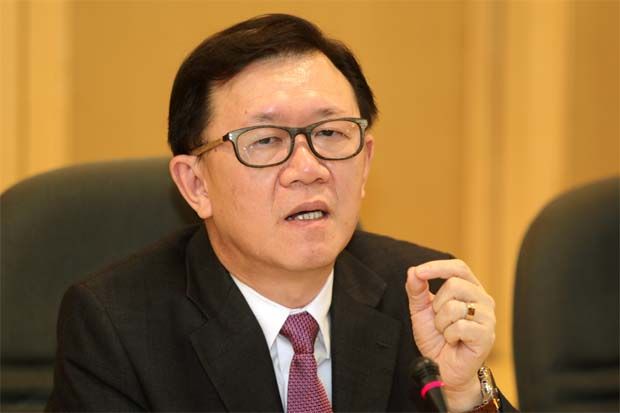How to give private investment in Malaysia a push?
MALAYSIA’S private investment growth has displayed weakening trends since 2012, with its growth moderating from an annual rate of 21.4% in 2012 to 4.3% in 2016, before gaining traction to 9.3% in 2017.
It pulled pack sharply to an average growth of 3.3% in the first half of 2018, as investors adopted a wait-and-see approach ahead of the 14th general election.
During the period of 2015-17, private investment growth almost halved to 6.8% per annum from a double-digit rate of 13.6% in 2010-2014 though its share to gross domestic product (GDP) had risen from 12.3% in 2010 to 17.4% in 2017, marking a mere rise of 5.1% pts over eight years. This indicates that there remain challenges to uplift the private investment growth trajectory amid facing cost competitiveness, domestic investment prospects and competition for FDI. Private investment’s share to total investment expanded from 55.0% in 2010 to 68.4% in 2017.
The country’s new political landscape and policy transition, including the review of some mega-infrastructure projects, would dent private investment prospects over the medium term.
Considering the government’s commitment to achieve inclusive and quality growth and sustainable development, I expect the Finance Minister to announce measures aimed at encouraging private investment, as it has an imperative role to play in enhancing economic growth. The essential pre-conditions for animal spirit investors to step up investment in the domestic economy will be the return of profitability, a friendly investment climate, an easier cost of doing business (including regulatory and compliance costs) as well as industry prospects.
It is hoped that both the federal government and state governments remain open to creating a flexible and open business environment alongside the simplification and streamlining of systems, processes and regulations for setting up businesses.
Among other catalysts, the corporate tax rate in Malaysia has room to be more progressive. Though the fiscal budget restraints the reduction of the corporate tax rate in 2019, the Tax Reform Committee (TRC) can take a considered view on this matter and suggest a pre-announcement of lowering the corporate tax rates in 2020 and beyond while reducing the plethora of exemptions/tax credits/allowances to have a more streamlined tax system.
The ultimate tax system reform is fairer, more internationally competitive, more effective and less complex.
Barriers ought to be removed for private investment. Businesses need environment stability and predictability to commit long-term investment.
A coherent investment policy framework is an important stabilisation factor. A clear vision of Malaysia’s direction and the certainty about its future is likely to make investors more willing to invest.
There should be a reduction in over-regulation and the administrative burden, as well as less intrusive public services, including the over-crowding of government-linked companies (GLCs) and state-owned enterprises (SOEs) providing a more business-friendly regulatory environment to encourage private investment.
Reducing bureaucracy, red tape and gold-plating as well as addressing skills mismatches and encouraging the deployment of technology and innovation would bring down the cost of doing business.
More private and public investment is needed in areas such as technology and innovation. Additional R&D spending will spark the creation of new technologies, encouraging businesses to invest in new equipment. Funds for Domestic Strategic Investment should focus its interventions on sectors of the future, particularly on Industry 4.0, keep its market-driven emphasis and aim for greater involvement of private funding. Public investment should be better directed to areas that support private-sector activities.
The issue of maintaining competitive neutrality (a “level” playing field”) between private and publicly-owned businesses (GLCs and SOEs) need to be rationally and critically reviewed to enhance efficiency throughout the economy. GLCs and SOEs tend to be concentrated in sectors where natural or legal monopoly is commonplace and should operate in a purely commercial fashion and should compete on an equal basis with other companies. However, in practice, many were given some form of state interventions or subsidies given their blurry lines or competing objectives between performing commercial and non-commercial (social) functions.
Implementing competitive neutrality not only helps to minimise the risk of crowding out competitive activities and encourage private investment, but also ensures the optimality of public resources.
Another area of reform to scale up the private sector’s participation in economic activities is to promote competitive and non-discriminatory public procurement to ensure that resources flow to those sectors that can make best use of them.
While not a new concept, public-private partnerships (PPPs) can be further enhanced as an effective tool to harness both public and private sector resources in implementing projects such as infrastructure and public amenities. This will be enhanced through the establishment of an independent oversight body, which is tasked to evaluate, oversee and monitor the implementation of PPPs to ensure that resources are optimally utilized and the provision of services is at a reasonable cost without incurring a huge fiscal cost. A mechanism should be established to ensure reasonable returns for private investors, as well as risk sharing between the public and private sectors when taking part in PPP projects.
Reforms in private capital investment directed at upgrading the manufacturing industry to promote high-end and deepen value creation with domestic industries are needed. An Industry Adjustment Fund should be tailored to lure private investment into strategic emerging industries driven by newer technologies, innovation and knowledge. These include defence technology, climate equipment, aerospace, automotive, low-cost and green processes, medical devices and modern agriculture
Source: TheStar

